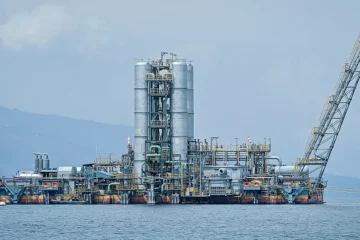For years, Chinese investment in Africa has been welcomed as a lifeline, often filling the void left by strained relations with Western nations. In Zimbabwe, Beijing became a top source of capital after the country’s isolation by the West two decades ago. But last week, the Zimbabwean government issued an unusually sharp rebuke, warning Chinese investors against labor abuses, environmental destruction, and illicit financial activities.
Tafadzwa Muguti, a senior official in President Emmerson Mnangagwa’s office, told delegates at the China-Zimbabwe Business Forum that the “majority” of Chinese businesspeople were bypassing local banks and warned against “digging up our ancestors’ graves” in pursuit of granite or gold. His remarks hit on issues Zimbabweans have long raised, illegal mining in protected areas, displacement of communities, and desecration of cultural heritage.
While the warning is welcome, it raises a deeper question:
Why were such violations tolerated for so long?
Across Africa, weak regulatory systems, corruption, and the prioritization of foreign investment over local welfare create a fertile ground for exploitation. Too often, governments dismiss citizen complaints as “anti-development” or as interference from Western actors. This defensive posture shields abusive investors from scrutiny while silencing local voices.
Chinese companies, like other foreign investors, often work within the parameters set or neglected by African authorities. The failure to enforce labor laws, protect the environment, and safeguard cultural heritage lies not only with the investors but also with African governments that permit or overlook these breaches.
Zimbabwe’s situation is not unique. From riverbeds scarred by unregulated mining in Ghana to fishing rights disputes in Senegal, Africa’s under-enforcement of its own laws erodes sovereignty and sacrifices long-term sustainability for short-term deals. Foreign capital may bring infrastructure and jobs, but without strong governance, it can also strip communities of resources, dignity, and future opportunities.
If this latest warning from Harare marks the beginning of a genuine shift, where African governments place citizens’ rights and environmental stewardship above political alliances, it could be a turning point. But unless such statements are backed by consistent action and transparency, they risk becoming just another speech, forgotten until the next scandal.
In the end, Africa’s real leverage lies not in pleading with investors to respect the rules, but in enforcing them without fear or favor.








